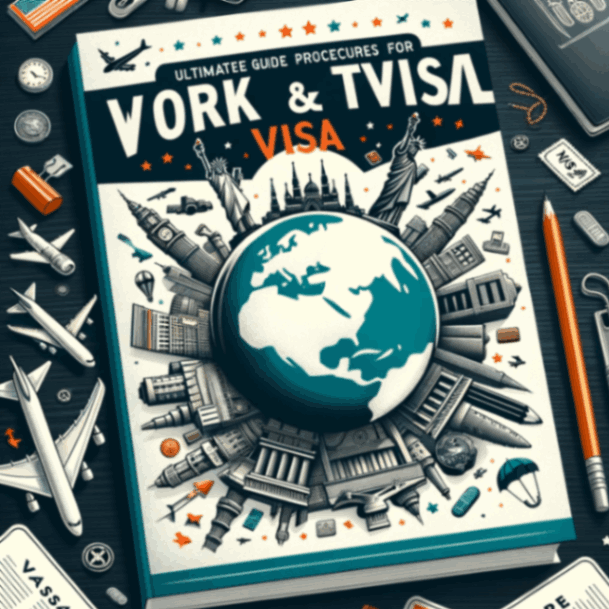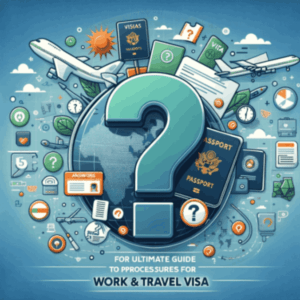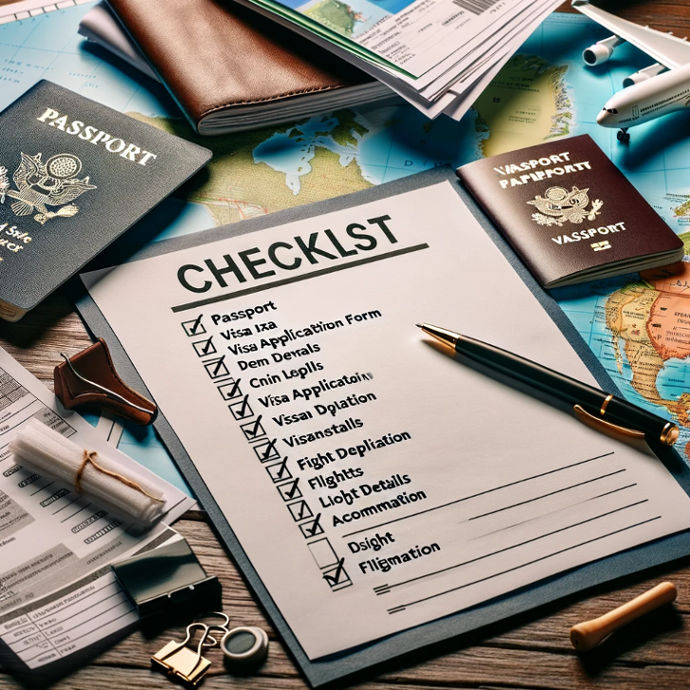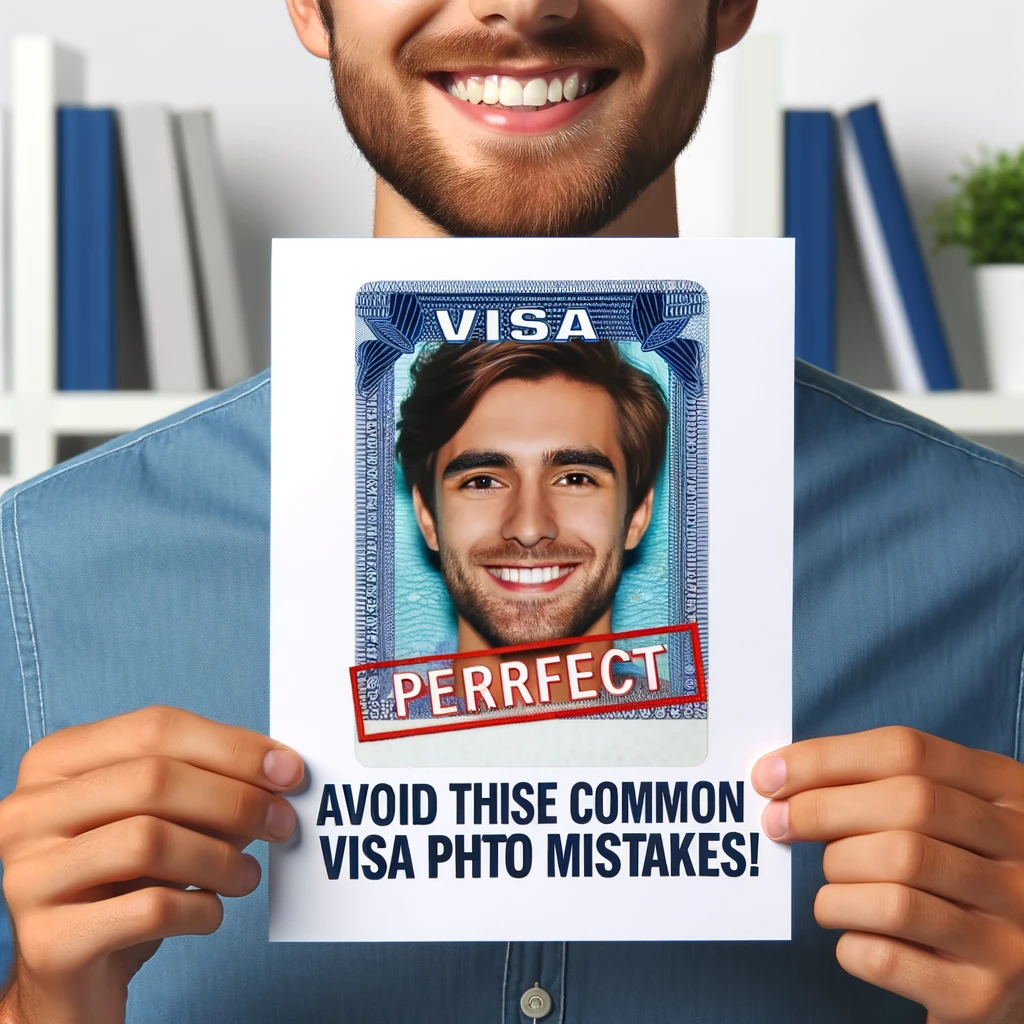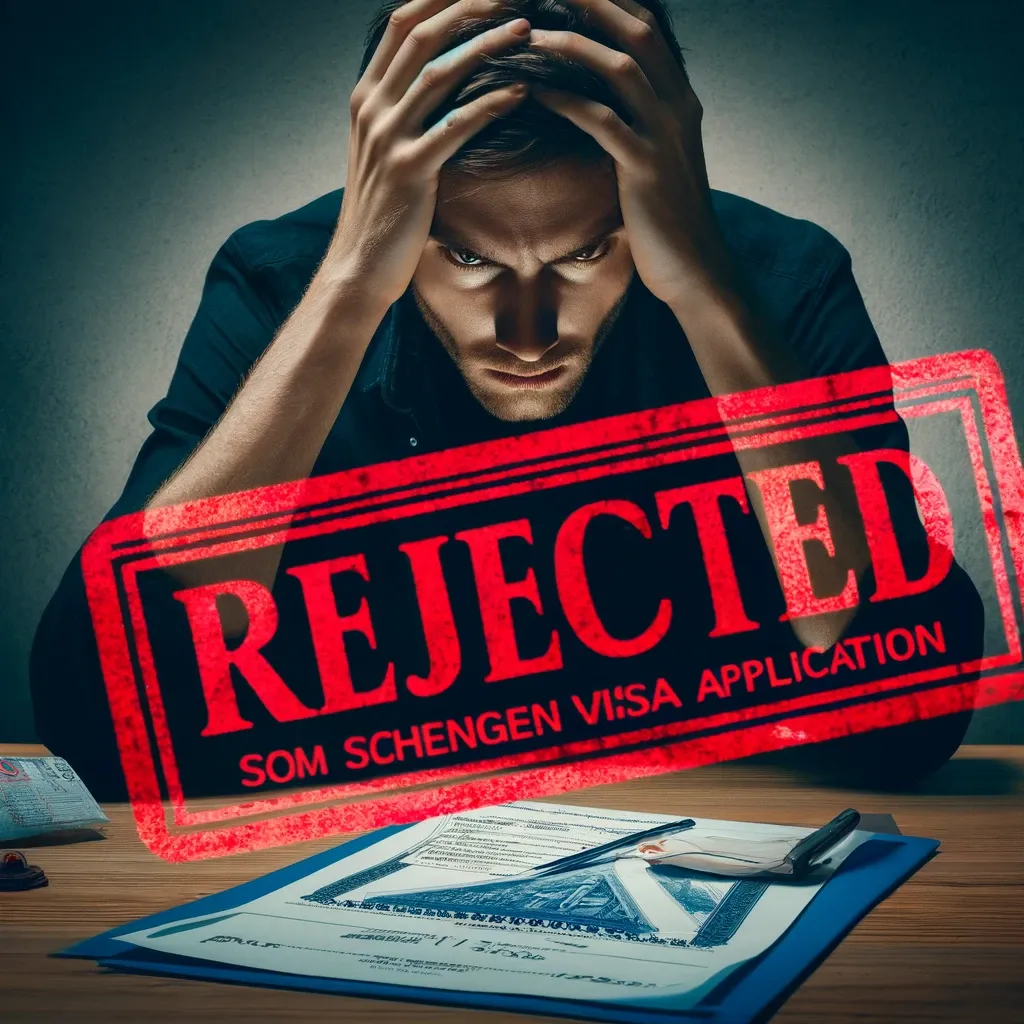A Work & Travel Visa is a special type of visa that allows individuals to temporarily live, work, and travel in a foreign country. It’s designed for young people who want to experience life in another country while also gaining work experience. This visa typically permits individuals to stay for a specific period, often a few months, and engage in various employment opportunities, such as seasonal jobs, internships, or temporary work positions. Work & Travel Visas provide a unique opportunity to explore a foreign culture, meet people from different backgrounds, and develop both personally and professionally. The eligibility criteria and specific regulations associated with Work & Travel Visas may vary from one country to another, so it’s essential to research and understand the requirements of the specific program and destination you’re interested in.
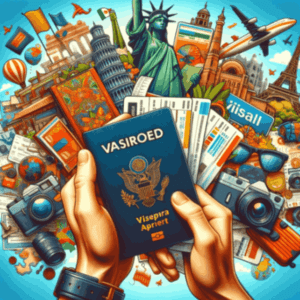
Eligibility Criteria
The eligibility criteria for a Work & Travel Visa typically include the following:
- Age Requirement: Applicants are usually required to be within a specific age range, often between 18 and 30 years old. Some countries may have slightly different age limits, so it’s essential to check the specific requirements for your chosen destination.
- Student Status: Many Work & Travel programs require applicants to be full-time students at a college or university or recent graduates. Proof of enrollment or graduation may be necessary during the application process.
- Valid Passport: Applicants must possess a valid passport issued by their home country. The passport should have an expiration date well beyond the intended duration of the Work & Travel program.
- Financial Proof: Demonstrating sufficient financial means to support oneself during the stay is often a requirement. This may involve providing bank statements or proof of funds to cover living expenses.
- Program-Specific Requirements: Each Work & Travel program may have its own specific eligibility criteria. These can include language proficiency, medical examinations, or specific skills related to the type of work involved in the program.
- Clean Criminal Record: Some countries may require applicants to have a clean criminal record and provide a certificate of good conduct.
It’s crucial to note that eligibility criteria can vary between countries and even between different programs within the same country. Therefore, it’s essential to carefully review the specific requirements for the Work & Travel program you are interested in to ensure you meet all the necessary qualifications before applying.
Choosing the Right Program
When it comes to choosing the right Work & Travel program, it’s essential to consider your personal interests, career goals, and the kind of experience you’re looking for. Here are some key factors to help you make the best choice:
- Program Types: Work & Travel programs come in various types, such as cultural exchange, internship, and seasonal work programs. Determine which type aligns with your goals. Cultural exchange programs focus on immersing you in a new culture, while internships offer career-related experience. Seasonal work programs may involve jobs in sectors like tourism, agriculture, or hospitality.
- Destination: Think about the country or destination where you want to work and travel. Consider factors like language, culture, climate, and the overall experience you desire. Some programs may limit your options to specific countries, so research available destinations.
- Duration: The duration of your Work & Travel experience can vary. Decide how long you want to stay abroad, as this can influence the type of program you choose. Some programs offer short-term experiences, while others allow for longer stays.
- Cost and Budget: Different programs have varying costs associated with application fees, visa fees, and living expenses. Create a budget to understand the financial commitments required for your chosen program and destination.
- Job Opportunities: Research the job opportunities available in the program you’re interested in. Ensure that the types of work align with your skills and interests. Consider the availability of jobs in your chosen destination.
- Program Support: Evaluate the level of support provided by the program organizers. Some programs offer assistance with visa processing, finding accommodation, and job placement, while others may require more independent planning.
- Networking Opportunities: Consider the potential for networking and making connections in your chosen field. An internship program, for example, might provide valuable industry contacts.
- Cultural Immersion: If cultural immersion is a priority for you, choose a program that encourages interaction with locals and offers opportunities to explore the culture of your host country.
- Program Reviews: Read reviews and testimonials from previous participants in the program. This can provide insights into the overall experience, challenges, and benefits.
- Legal Requirements: Ensure that you meet all legal requirements for the program, such as visa regulations and eligibility criteria. Failing to comply with these requirements can lead to difficulties during your stay.
By carefully considering these factors and conducting thorough research, you can select the Work & Travel program that aligns with your interests and goals, ensuring a fulfilling and enriching experience abroad.
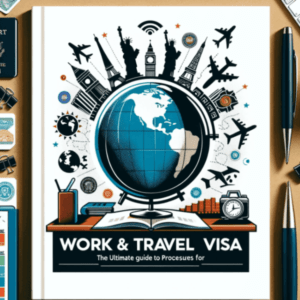
Required Documents
To successfully apply for a Work & Travel Visa, you’ll need to prepare a set of essential documents. These documents vary depending on the specific program and destination country, but here’s a list of commonly required items:
- Valid Passport: Ensure your passport is valid for the entire duration of your intended stay abroad. It’s also a good practice to have at least a few blank pages for visa stamps.
- Visa Application Form: Complete the visa application form accurately and thoroughly. Some countries may provide an online application process, while others require physical forms to be submitted.
- Program Acceptance Letter: Obtain an official acceptance letter from the organization or program sponsor facilitating your Work & Travel experience. This letter should detail your participation in the program.
- Proof of Student Status: If you’re a student or recent graduate, provide proof of your enrollment or graduation from a college or university. This can be in the form of transcripts or a diploma.
- Passport-Sized Photos: Typically, you’ll need recent passport-sized photos to attach to your visa application. Follow the specific photo requirements of your destination country.
- Financial Documentation: Demonstrate your financial ability to support yourself during your stay. This may include bank statements, a letter from a sponsor, or evidence of savings.
- Proof of Travel Insurance: Many countries require travelers to have travel insurance covering medical emergencies, repatriation, and other unexpected events. Provide proof of insurance coverage.
- Criminal Background Check: Some countries may request a clean criminal record or a certificate of good conduct. Ensure you obtain this document if it’s required.
- Health Certificate: Depending on the program and destination, you may need a health certificate or proof of vaccinations. Check the health requirements for your specific location.
- Resume/CV: For internship programs, you may need to submit your resume or curriculum vitae (CV) detailing your education, skills, and work experience.
- Letters of Recommendation: In some cases, you may be asked to provide letters of recommendation from professors, employers, or mentors. These letters can support your application.
- Travel Itinerary: Prepare a detailed travel itinerary, including flight bookings, accommodation reservations, and any planned activities during your stay.
- Application Fee: Be ready to pay the required visa application fee. Fees vary by country and program, so check the specific cost associated with your application.
- Additional Documentation: Some programs and countries may have specific requirements, such as language proficiency tests or job-related certifications. Ensure you meet these requirements.
- Declaration of Intent: Draft a letter explaining your intentions for the Work & Travel program, including your plans for work, travel, and personal development.
It’s crucial to review the specific document requirements for your chosen program and destination country, as these requirements can vary significantly. Additionally, make sure to submit all documents accurately and within the specified deadlines to increase your chances of a successful visa application.
Application Process
The application process for a Work & Travel Visa involves several steps, and it’s important to follow them carefully to ensure a smooth and successful application. Here’s a general outline of the typical application process:
- Research and Program Selection:
- Begin by researching different Work & Travel programs and destinations to find one that aligns with your interests and goals.
- Select the program that suits you best, considering factors like the type of work, location, and duration of the program.
- Eligibility Check:
- Confirm that you meet all the eligibility criteria for the chosen program and destination. Ensure you are within the specified age range, have the required student status or recent graduate status, and meet other specific requirements.
- Gather Required Documents:
- Collect all the necessary documents as outlined in the program’s requirements. This typically includes your valid passport, visa application form, program acceptance letter, financial documents, passport-sized photos, and any additional documents specified.
- Complete the Visa Application:
- Carefully fill out the visa application form, ensuring that all information is accurate and matches the details in your supporting documents. Some countries may offer online application forms, while others require physical submissions.
- Pay Application Fees:
- Pay the required visa application fees as indicated by the program or destination country. Keep the payment receipt or confirmation as proof of payment.
- Submit Application:
- Submit your visa application along with all the required documents through the designated channels. This could include an online application portal, a consulate or embassy, or a visa processing center.
- Application Processing:
- Wait for your application to be processed by the immigration authorities or visa processing center. Processing times can vary, so it’s essential to apply well in advance of your intended travel date.
- Interview (if required):
- Some countries may require an in-person or virtual interview as part of the application process. Prepare for the interview by understanding the program, your responsibilities, and demonstrating your commitment to work and travel.
- Visa Approval:
- Once your application is approved, you will receive a notification or visa approval letter. This letter confirms that you have been granted the Work & Travel Visa.
- Travel Plans:
- With your visa approval in hand, it’s time to plan your travel. Book your flights, secure accommodation, and create a checklist of essential items you’ll need during your stay.
- Travel Insurance:
- Consider purchasing comprehensive travel insurance to cover unexpected events, such as medical emergencies or trip cancellations, during your Work & Travel experience.
- Departure:
- Depart for your destination country as per your planned travel dates. Make sure to carry all your important documents, including your passport, visa approval letter, and travel insurance information.
- Arrival and Immigration:
- Upon arrival in your host country, follow the immigration procedures, and be prepared to present your visa approval and other required documents.
- Program Commencement:
- Start your Work & Travel experience, embracing the local culture, meeting new people, and fulfilling your work responsibilities.
It’s essential to remain organized throughout the application process, double-checking all documents and deadlines. Additionally, stay informed about any changes or updates to the visa application process in your chosen destination, as requirements may evolve over time.
Interview Preparation
Preparing for the interview as part of your Work & Travel Visa application is crucial to make a positive impression and increase your chances of visa approval. Here are some steps to help you get ready for the interview:
- Understand the Program: Gain a thorough understanding of the Work & Travel program you’ve applied for. Know the specifics of the program, such as the type of work you’ll be doing, the duration of your stay, and the responsibilities involved.
- Review Your Application: Go through your visa application and supporting documents to refresh your memory about the information you’ve provided. Ensure that your application is consistent with the details you’ll discuss during the interview.
- Practice Common Questions: Prepare answers for common interview questions related to your program, travel plans, and intentions. Practice responding confidently and concisely. Questions may include:
- Why do you want to participate in the Work & Travel program?
- What are your plans during your stay in [destination country]?
- How do you plan to support yourself financially?
- What skills or qualifications make you a suitable candidate for this program?
- Do you have any previous experience related to the type of work you’ll be doing?
- Know Your Responsibilities: Be prepared to discuss your responsibilities and duties during your stay. Familiarize yourself with the job description and the expectations of your employer or program sponsor.
- Cultural Awareness: Research the culture and customs of your host country. Understanding and respecting local customs can demonstrate your readiness to adapt and integrate into the community.
- Confidence and Communication: Practice speaking confidently and clearly. Maintain eye contact and good posture during the interview. Remember to speak in a friendly and approachable manner.
- Dress Appropriately: Dress professionally and appropriately for the interview. Choose attire that reflects your seriousness about the opportunity and respects the culture of the host country.
- Prepare Questions: Be ready to ask questions as well. This shows your interest in the program. Questions might include:
- What support does the program provide for participants?
- How will housing and transportation be arranged?
- Are there any specific cultural or social events you should be aware of?
- Review Your Documents: Ensure that you have all your required documents neatly organized and readily accessible. This includes your passport, visa application, visa approval letter, program acceptance letter, and any other requested paperwork.
- Stay Positive: Approach with a positive attitude. Express your enthusiasm for the opportunity and your eagerness to learn, work, and travel.
- Be Punctual: Arrive on time for the interview. Being punctual demonstrates your responsibility and commitment.
- Stay Calm: Remember that interviews can be nerve-wracking, but try to stay calm and composed. If you don’t understand a question, don’t hesitate to ask again.
- Follow-Up Questions: Be prepared for follow-up questions based on your initial responses. Provide specific details to support your answers.
- Practice with Others: If possible, practice your interview with friends or family members who can provide feedback and help you improve your responses.
By thoroughly preparing for your Work & Travel Visa interview, you can present yourself as a qualified and committed candidate, increasing your chances of securing the visa and embarking on an exciting international adventure.
Visa Approval and Travel Plans
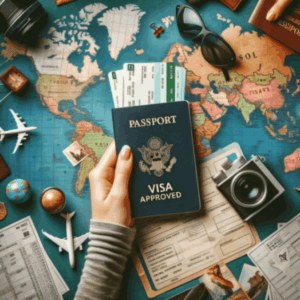
Once you receive the approval for your Work & Travel Visa, it’s time to start planning your travel and making necessary arrangements for your upcoming adventure. Here’s a step-by-step guide to help you on this stage:
1. Celebrate and Confirm Your Visa Approval:
- First and foremost, celebrate your visa approval! It’s a significant achievement. Share this great news with friends and family.
- Double-check all the details on your visa approval letter to ensure accuracy.
2. Book Flights:
- Begin by booking your flights to and from your host country. Look for the best deals and options that align with your travel dates.
- Make sure your flight schedules match your intended arrival and departure times.
3. Accommodation Planning:
- Research and secure your accommodation. Consider options like hostels, shared apartments, or accommodations arranged by your program sponsor.
- Ensure that your accommodation is conveniently located and meets your needs for the duration of your stay.
4. Create a Travel Checklist:
- Develop a checklist of essential items to pack for your trip. Include clothing appropriate for the destination’s climate, travel adapters, toiletries, and any specific items required for your job.
- Don’t forget to pack important documents such as your passport, visa approval letter, program acceptance letter, and travel insurance information.
5. Purchase Travel Insurance:
- Consider purchasing comprehensive travel insurance that covers medical emergencies, trip cancellations, lost luggage, and other unexpected events during your journey.
6. Currency and Finances:
- Make necessary arrangements for foreign currency exchange or acquire a travel-friendly currency card.
- Inform your bank of your travel plans to prevent any issues with accessing funds abroad.
7. Learn Basic Phrases:
- Learn basic phrases in the local language of your destination. Even learning a few greetings and common expressions can be helpful and appreciated by locals.
8. Cultural Research:
- Continue researching the culture and customs of your host country. Understanding local customs will help you adapt more easily.
9. Emergency Contacts:
- Have a list of emergency contacts, including local authorities, your program sponsor’s contact information, and the contact details of your embassy or consulate in the host country.
10. Pre-Departure Orientation:
- Attend any pre-departure orientation sessions or webinars organized by your program sponsor. These sessions can provide valuable information and address any last-minute questions or concerns.
11. Stay Organized:
- Keep all your important documents, including your passport, visa, and flight tickets, in a secure and easily accessible folder or pouch.
12. Stay Informed:
- Stay updated on any travel advisories, health and safety guidelines, or entry requirements related to your host country. Be prepared for any COVID-19-related travel regulations.
13. Bid Farewell:
- Say your goodbyes to friends and family, and share your travel plans with loved ones. Ensure they have your contact information while you’re abroad.
14. Final Preparations:
- Double-check your checklist and ensure you haven’t missed anything crucial.
- Be well-rested and ready for your journey.
With your travel plans in order, you’re well-prepared to embark on your Work & Travel adventure. This phase marks the beginning of an exciting and transformative experience, so embrace it with enthusiasm and an open mind. Safe travels!
Work & Travel Experience
The Work & Travel experience is the heart of your journey, where you’ll have the opportunity to work, travel, and immerse yourself in a new culture. Here’s what you can expect and how to make the most of this extraordinary adventure:
1. Embrace the Local Culture:
- One of the most enriching aspects of the Work & Travel experience is the chance to immerse yourself in a different culture. Embrace local traditions, and daily life.
- Engage with locals, make friends, and learn about their way of life. Participate in cultural events and festivals to gain a deeper understanding of your host country.
2. Fulfill Your Work Responsibilities:
- Remember that your Work & Travel visa is not just for leisure; it’s also an opportunity to gain work experience abroad. Take your job seriously and excel in your responsibilities.
- Use this experience to develop valuable skills and add an international dimension to your resume.
3. Be Open to New Experiences:
- Be open to trying new things, whether it’s tasting local cuisine, exploring unique activities, or taking on challenges you’ve never encountered before.
- Step out of your comfort zone and enjoy unforgettable memories.
4. Travel and Explore:
- Make the most of your free time to travel and explore the host country. Visit iconic landmarks, natural wonders, and historic sites.
- Plan your trips in advance, but also be spontaneous and open to unexpected adventures along the way.
5. Build Lasting Relationships:
- The people you meet during your Work & Travel experience can become lifelong friends. Take the time to build meaningful relationships with fellow participants and locals.
- Networking can also open up opportunities for future career prospects or travel companions.
6. Document Your Journey:
- Keep a journal, take photos, and create a travel blog or social media account to share your experiences with friends and family back home.
- Documenting your journey helps you remember the details and preserves your memories.
7. Stay Safe and Healthy:
- Prioritize your safety and well-being. Follow local laws and regulations, and be mindful of your surroundings.
- Stay informed about health precautions and seek medical attention if needed. Carry necessary medications and travel insurance information.
8. Budget Wisely:
- Manage your finances carefully to ensure you can enjoy your time abroad without financial stress and avoid unnecessary expenses.
- Be prepared for unexpected costs and emergencies.
9. Cultural Sensitivity:
- Respect cultural norms and traditions. Learn about etiquette and behavior expectations in your host country.
- Be considerate of local customs, dress codes, and religious practices.
10. Reflect and Grow: – Take time to reflect on your experiences and personal growth throughout your Work & Travel journey. – Consider how this adventure has impacted your worldview, career aspirations, and personal development.
Remember that the Work & Travel experience is a unique opportunity to expand your horizons, create lasting memories, and gain a deeper understanding of the world. Embrace every moment and savor the richness of this extraordinary adventure.
Extending Your Stay
Extending your stay during your Work & Travel experience can be a wonderful option if you’ve fallen in love with your host country or if you’re looking to further enrich your adventure. Here are some tips and considerations for extending your stay:
1. Understand Visa Regulations:
- Begin by thoroughly understanding the visa regulations of your host country. Different countries have varying policies regarding visa extensions and requirements.
2. Explore Extension Options:
- Research the available options for extending your stay. Some countries offer specific visa extension programs for participants in cultural exchange or seasonal work programs.
- Consult with your program sponsor or the local immigration authorities to inquire about extension possibilities.
3. Plan Ahead:
- Start planning for your extension well in advance of your original visa’s expiration date. Many countries have strict deadlines and requirements for extension applications.
4. Eligibility Criteria:
- Ensure that you meet all eligibility criteria for the extension program. This may include demonstrating your commitment to your job, maintaining good standing with your employer, and abiding by local laws.
5. Gather Necessary Documents:
- Prepare all required documents for your extension application. These documents may include a new job offer, proof of financial stability, updated health insurance, and a valid passport.
6. Seek Legal Advice:
- Consider seeking legal advice or assistance from immigration experts or attorneys who specialize in visa extensions. They can provide guidance on the process and help ensure your application is complete and accurate.
7. Be Flexible:
- Be open to flexibility in your travel plans. Extension processing times can vary, and it’s essential to remain patient throughout the process.
8. Maintain a Positive Record:
- Continue to excel in your work responsibilities and maintain a positive record during your initial stay. A good track record can strengthen your case for an extension.
9. Stay Informed:
- Stay updated on any changes in immigration policies or visa regulations in your host country. Regulations can change, and it’s crucial to be aware of updates that may affect your extension application.
10. Cultural Immersion: – Use the opportunity of an extended stay to deepen your cultural immersion. Learn the language, engage with the local community, and explore more aspects of your host country.
11. Travel Opportunities: – Take advantage of the extra time to travel and explore other regions within the host country or neighboring countries. Use this opportunity to expand your horizons further.
12. Return Home Gracefully: – If, for any reason, your extension application is not approved, plan your return home gracefully. Reflect on the valuable experiences and personal growth you’ve gained during your extended stay.
Remember that extending your stay can provide even more opportunities for personal and professional growth, deeper cultural understanding, and unforgettable memories. Approach the process with careful planning and a positive attitude, and you may find that your Work & Travel adventure becomes an even more transformative experience

